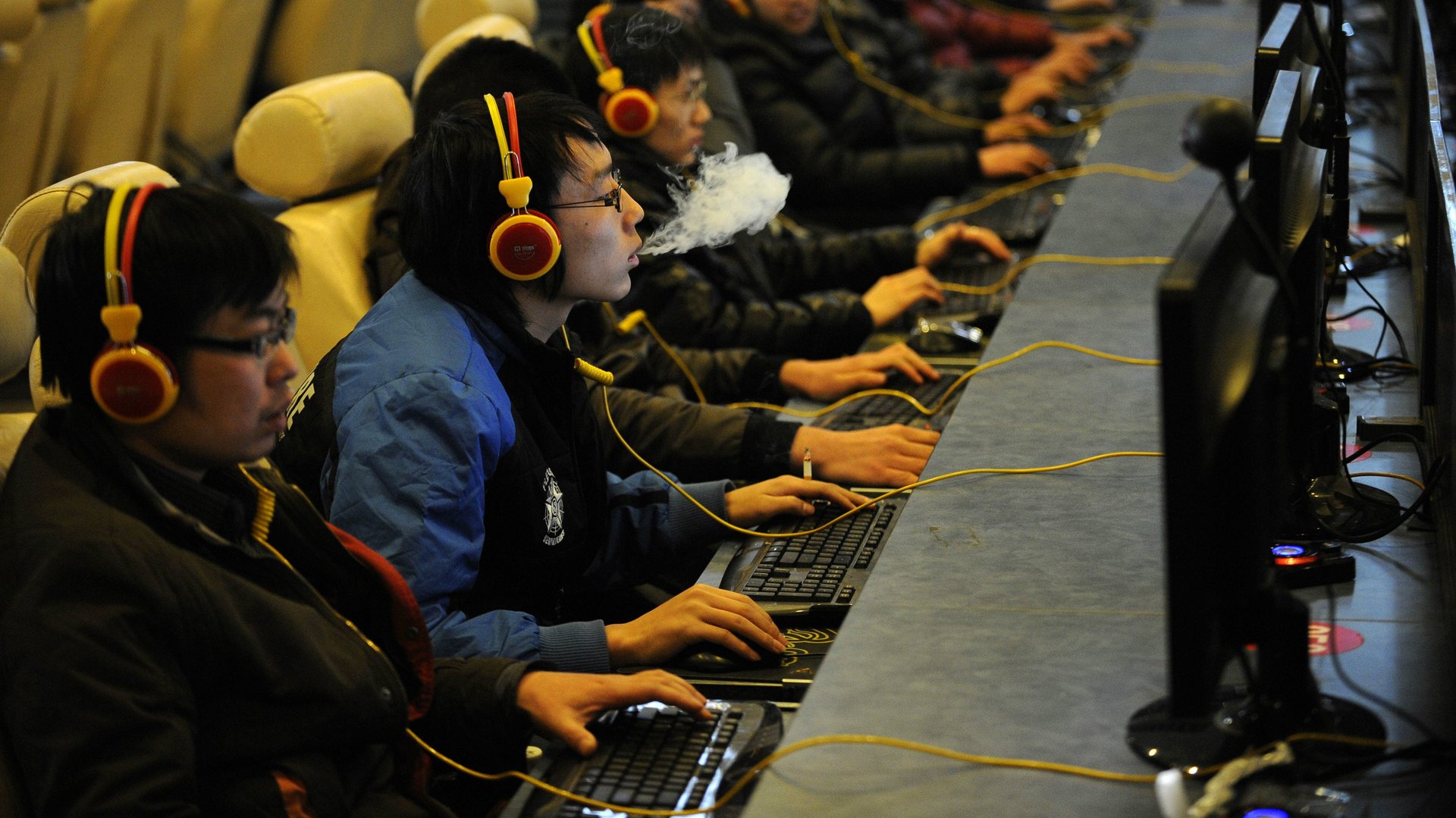Online video games are the latest casualty of China’s war against Korean businesses
First it was K-pop. Then it was tourism. Now another South Korean industry is enduring pressure from China: online video games.


First it was K-pop. Then it was tourism. Now another South Korean industry is enduring pressure from China: online video games.
Beijing has introduced a policy that will prevent new online games from South Korea from receiving approval for release in China. It marks Beijing’s latest crackdown on Korean businesses operating in China in response to a THAAD antimissile defense system that could be operational in South Korea as early as April. The setup of the system, which also involves US forces, began this week.
Nexon, a Seoul-based, Tokyo-listed game developer, confirmed the policy’s existence to Quartz in an emailed statement:
When bringing any new game to China, a company needs approval from China’s State Administration of Press, Publication, Radio, Film and Television… Per recent reports, China will stop providing approvals for new games made in Korea going forward.
The company didn’t share further details about the specific government guidance, which has yet to be circulated publicly.
Overseas online game developers must already go through a complicated process to get their title approved in China, including submitting paperwork to authorities, obtaining licenses, and working with domestic publishers. Given the fallout over THAAD, it appears likely that the latest regulatory guidelines will make it even more difficult for new Korean titles to get the necessary approval for a Chinese release.
Yet the crackdown isn’t limited to the games themselves. Quartz obtained an internal email circulated about 10 days ago by a PR department at a major online games company in China. In it, the writer advises managers in the specific department to avoid promotional activities that include South Korea, and even advises against speaking openly and publicly about China-Korean relations. It reads:
For a long time, [this business division] has maintained relatively smooth cooperative relationships with our Korean partners. But due to influence from [THAAD], relations between China and Korea have entered a sensitive period.
As we understand it, the relevant government department has tightened restrictions on Korean games. Although we suspect that the present situation won’t further deteriorate in the short term, in order to take precautions, we must avoid certain measures that will attract attention from the government or irritate public opinion. The public relations team reminds each department:
When discussing Chinese-Korean relations, Korean games, or other topics, please do not express your opinions brashly.
For the time being, cease holding activities such as “China vs. Korea” competitions or inviting Korean stars to be brand ambassadors.
Please share the above information with all team managers. If you encounter problems, please contact [this business division’s] public relations team, we will manage the situation with the GR [sic] team accordingly.
Meanwhile share prices of Korean game companies have taken a tumble. Nexon, which makes Dungeon Fighter Online, a multiplayer PC fighting game popular in China, has lost 9.8% of its value since Feb. 24. The largest drop occurred between March 6 and March 7, when its closing price fell 3.7%.
Joymax, the Korean game maker best known for the fantasy title Silkroad Online—which it recently licensed to a Chinese company—has seen shares tumble 7% since Feb. 23.
Despite how the US government touts THAAD as a defense-oriented program intended to deflect missiles launched by North Korea, Beijing objects to it because of its surveillance capabilities, as well as the general encroachment it represents of US and South Korean power toward China’s borders. As a result, in recent months Beijing has taken a number of measures to hurt Korean companies. They’ve included preventing Korean pop stars from performing in China, shutting down Korean-owned supermarkets, banning the imports of Korean makeup brands, and barring Korean airlines from getting access to new routes to China.
On March 7, the South Korean government made its first public statement suggesting it might file a complaint to the World Trade Organization against China. If more crackdowns follow, that might come sooner rather than later.